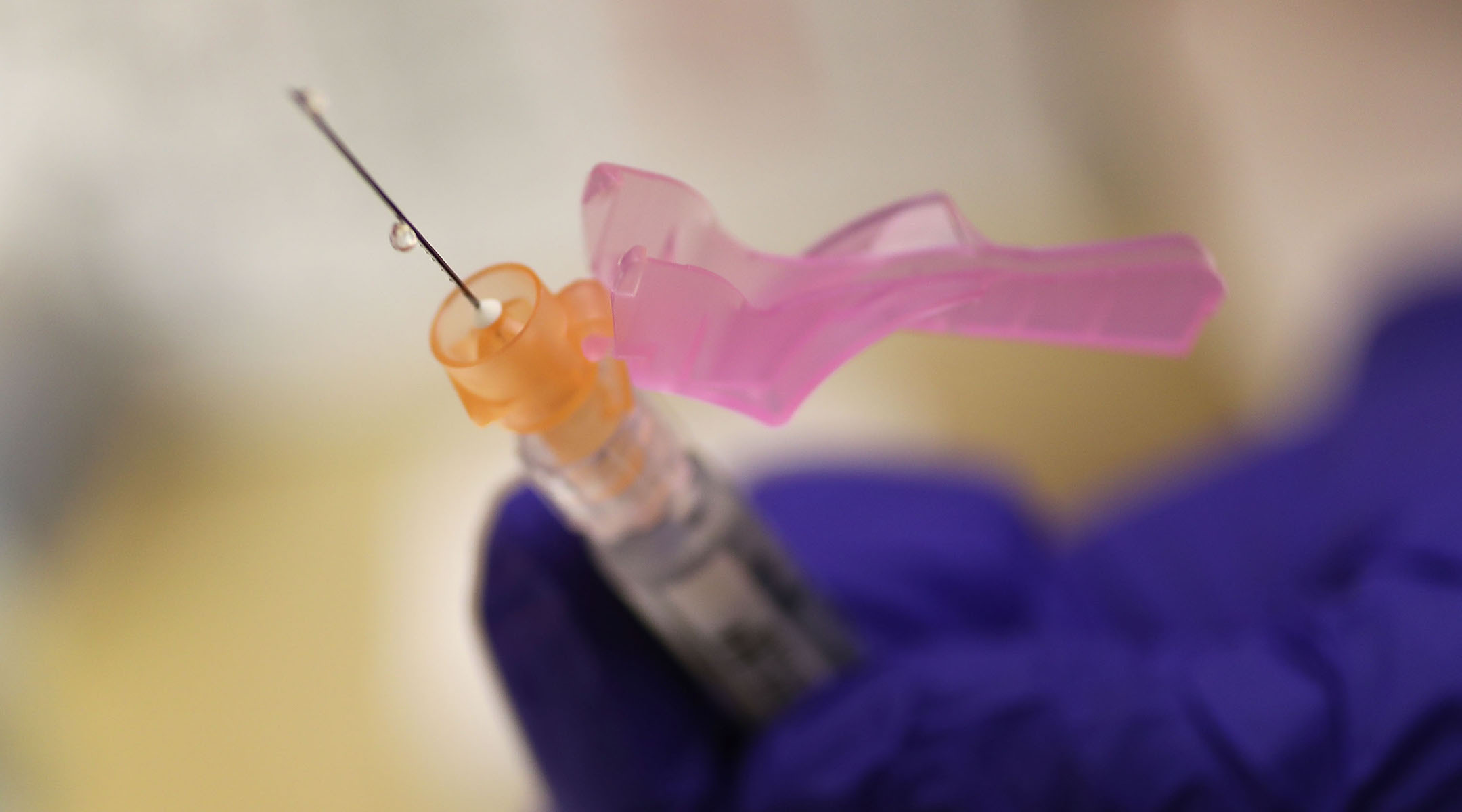(New York Jewish Week) — A conference for Orthodox medical professionals that aims to improve healthcare literacy in the community is drawing backlash from anti-vaccine activists, who are also planning a protest.
The conference, set to take place at a hotel in the heavily Hasidic Brooklyn neighborhood of Williamsburg, will cover a broad range of topics — including vaccination, community healthcare, long COVID and the return of infectious diseases such as polio. The conference, with an expected attendance of some 100 to 150 people, is approved as a continuing education course for medical professionals and is sponsored by multiple medical providers and community organizations.
The gathering comes after years of low vaccination rates in the city’s haredi Orthodox community, driven in part by misinformation, a lack of resources and mistrust in a city government that some felt had targeted Orthodox Jews. Recent years have also seen a current of anti-vaccine activism by some haredi Jews, in partnership with other anti-vaccine activists, despite repeated calls by a range of leading haredi rabbis to get vaccinated.
“There is so much mistrust right now across the globe, but very heavily in the Orthodox community right now,” Blimi Marcus, an Orthodox nurse and president of the Emes Initiative, a co-sponsor of the event, told the New York Jewish Week. “COVID caused a lot of additional mistrust that existed beforehand. People had a hard time with changing guidelines, mixed messaging, and feeling targeted by policies that were directed at specific communities.”
Last year, polio resurfaced in the United States for the first time in nearly a decade when an Orthodox Jewish man from Rockland County was diagnosed with the disease. One month later, New York City and state health officials announced that polio was detected in New York City wastewater, and cautioned communities to get vaccinated.
At that time, Williamsburg, which is home to one of the largest Orthodox Jewish populations in the state, had the city’s lowest rate of polio vaccination, with 56.3% of children between the ages of 6 months and 5 years having had three doses of the vaccine, according to the New York Citywide Immunization Registry.
Some members of Orthodox communities campaigned against COVID vaccinations as well, despite the admonitions of community leaders, while others hesitated to get the shot due to fears that it would adversely affect fertility. At present, some Hasidic neighborhoods in Brooklyn, including Borough Park and Williamsburg, have among the lowest levels of COVID vaccination in the city.
And in 2019, haredi Orthodox communities in the state experienced a measles outbreak that was tied to low vaccination rates. That outbreak also saw the growth of a vocal anti-vaccination campaign among Orthodox Jews.
Anti-vax activists are raising their voices against Sunday’s event as well. A flier has surfaced over the past week that is calling the event a “terrible Chilul Hashem,” or desecration of God’s name.
“People who deny that [God] created the world are scheduled to speak to the frum community at The Williamsburg Hotel,” the flier said, using a Jewish term connoting Orthodoxy. “Please help avert this terrible Chilul Hashem. Rabbonim [rabbis] have requested that whoever can possibly come, should join to stand up for Kavod Shamiyim,” or the honor of heaven.
A leading voice against the protests has been a blogger who goes by the name of Boruch Weiss. Weiss has written multiple articles calling the event “an atheist convention,” and did not respond to a request for comment.
“It must be noted that the beliefs espoused at this convention are a lot closer to Nazi ideology than they are to Judaism,” Weiss wrote. “It would be remiss not to mention that it was precisely this sort of ideology that led to the atrocities.”
Despite the protests, Marcus told the New York Jewish Week over the phone that “most people are looking forward” to the event. She recalled that previous protests of similar events did not draw “much of a turnout,” though she said there will be security present.
“This is one of the first times we’re bringing together most of the ultra-Orthodox providers from different communities around the tristate area,” Marcus said.
At the height of the pandemic in 2020, many in the city’s Orthodox community felt unfairly targeted by COVID restrictions that closed schools, parks and houses of worship. Orthodox protesters in Brooklyn burned masks and, at one point, cornered, mobbed and threatened a Hasidic reporter.
“A lot of people have taken all of this and come away with the message that no one is to be trusted except ourselves,” Marcus said. “They don’t want to hear from anyone that has beliefs that are different from theirs.”
Marcus said that Sunday’s event is “open to people from the Jewish community and beyond.”
“We can always learn from each other,” Marcus said. “Vaccine hesitancy is not limited to the Orthodox community. By far, it’s a global public health problem.”
The New York Jewish Week brings you the stories behind the headlines, keeping you connected to Jewish life in New York. Help sustain the reporting you trust by donating today.





